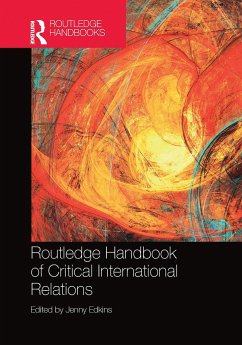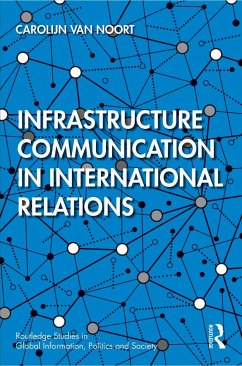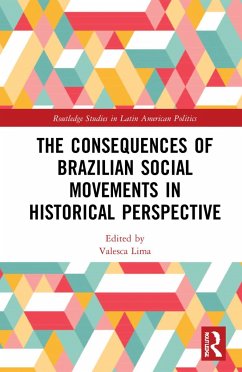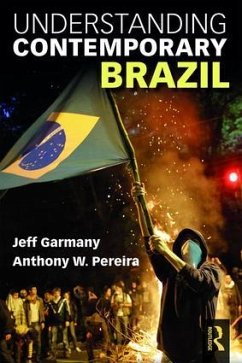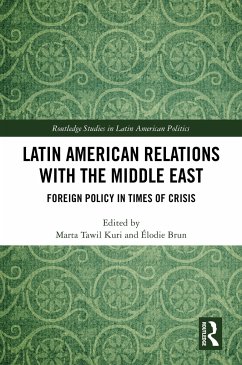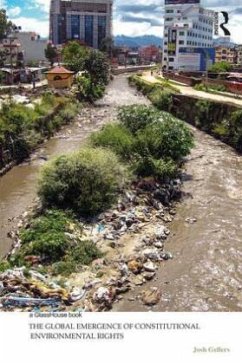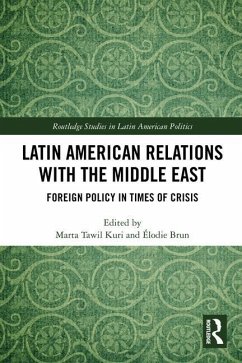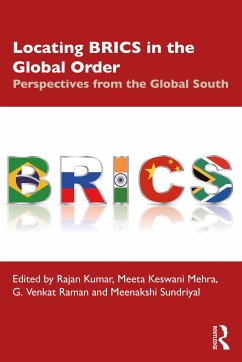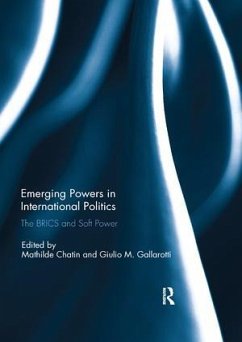
The Emergence of Brazil to the Global Stage
Ascending and Falling in the International Order of Competition
Versandkostenfrei!
Versandfertig in 6-10 Tagen
45,99 €
inkl. MwSt.
Weitere Ausgaben:

PAYBACK Punkte
23 °P sammeln!
How do discourses about Brazil's emergence as a global actor at the beginning of the twenty-first century reinforce particular temporal and spatial formations that enable the perpetuation of international hierarchies?This volume argues that while the phenomenon of 'emergence' was celebrated as the conquest of more authority for Brazil on the global stage, especially as Brazil was presented as a leader of developing countries, discourses about Brazil as an actor who was finally arriving at its promised future as a global player were also perpetuating a spatiotemporal structure that continues to...
How do discourses about Brazil's emergence as a global actor at the beginning of the twenty-first century reinforce particular temporal and spatial formations that enable the perpetuation of international hierarchies?
This volume argues that while the phenomenon of 'emergence' was celebrated as the conquest of more authority for Brazil on the global stage, especially as Brazil was presented as a leader of developing countries, discourses about Brazil as an actor who was finally arriving at its promised future as a global player were also perpetuating a spatiotemporal structure that continues to reward some societies and individuals at the expense of many others. Brazil's success or failure has depended from the beginning on how well it would perform its pre-determined role as a newly relevant or emergent 'global player'. Power and empowerment have been conceptualized in a way that discursively inhibits any form of escape from the temporal and spatial confines of a world order marked by geopolitical and geoeconomic competition. The book can be seen as an initial step towards an exploration of alternative forms of thinking, doing, and being, temporally and spatially, that are not limited to the competition among states for geopolitical status in the international system.
This work will be of great interest to students and scholars of critical international relations, international politics and Latin American studies.
This volume argues that while the phenomenon of 'emergence' was celebrated as the conquest of more authority for Brazil on the global stage, especially as Brazil was presented as a leader of developing countries, discourses about Brazil as an actor who was finally arriving at its promised future as a global player were also perpetuating a spatiotemporal structure that continues to reward some societies and individuals at the expense of many others. Brazil's success or failure has depended from the beginning on how well it would perform its pre-determined role as a newly relevant or emergent 'global player'. Power and empowerment have been conceptualized in a way that discursively inhibits any form of escape from the temporal and spatial confines of a world order marked by geopolitical and geoeconomic competition. The book can be seen as an initial step towards an exploration of alternative forms of thinking, doing, and being, temporally and spatially, that are not limited to the competition among states for geopolitical status in the international system.
This work will be of great interest to students and scholars of critical international relations, international politics and Latin American studies.





